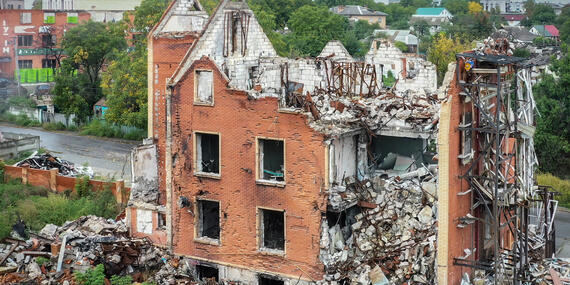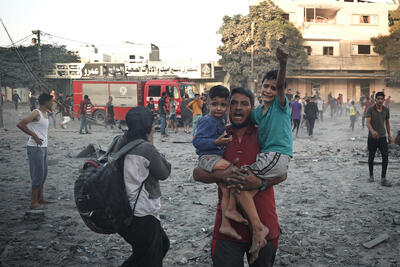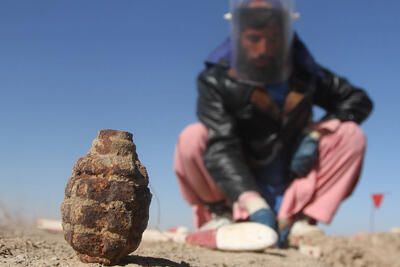Explosive weapons in populated areas

The use of explosive weapons in populated areas (EWIPA) is a major cause of civilian deaths and injuries during armed conflict. Between 2011 and 2021, 238,000 civilians fell victim to the use of EWIPA (AOAV, 2021). On average, 90 per cent of victims of attacks using explosive weapons in populated areas are civilians.
The use of explosive weapons in populated areas also has a severe reverberating humanitarian impact. People injured often require specialist medical and psychosocial care, in both the immediate and long term, which is often unavailable in conflict situations. Explosive weapons are a leading cause of damage to healthcare facilities, hampering the delivery of medical care. Explosive weapons leave explosive remnants of war that can kill and injure civilians long after hostilities have ended and prevent or delay reconstruction work or agricultural production, as well as the return of refugees and displaced persons.
The widespread destruction caused by the use of explosive weapons in populated areas has a dramatic effect on post-conflict reconstruction requirements and costs, and hinders development processes.
Taking action
The United Nations Secretary-General has called on Member States and all parties to conflict – both national armed forces and non-State armed groups – to avoid using explosive weapons with wide-area effects in populated areas.
Good practice does exist in this area.In 2017, OCHA documented these in a compilation of military policy and practice relating to the use of explosive weapons in populated areas. To help partners reinforce data collection capacity, the UN Institute for Disarmament Research (UNIDIR) designed a menu of indicators to measure the reverberating effects on civilians form the use of EWIPA. UNIDIR has also produced a research paper exploring opportunities to improve military policies and practice to reduce civilian harm from explosive weapons in urban conflict and a factsheet discussing the gendered impacts of EWIPA.
A new political declaration
After three years of negotiations, in 2022, 83 Member States endorsed the Political Declaration on the Humanitarian Consequences of the Use of Explosive Weapons in Populated Areas (EWIPA). The United Nations Secretary-General has supported those efforts since 2009, and notably through the Agenda for Disarmament. Moving forward, supporting the universalization of the Declaration as well as its effective implementation lie at the heart of the UN’s efforts.
Read Protecting civilians from the use of explosive weapons in populated areas


